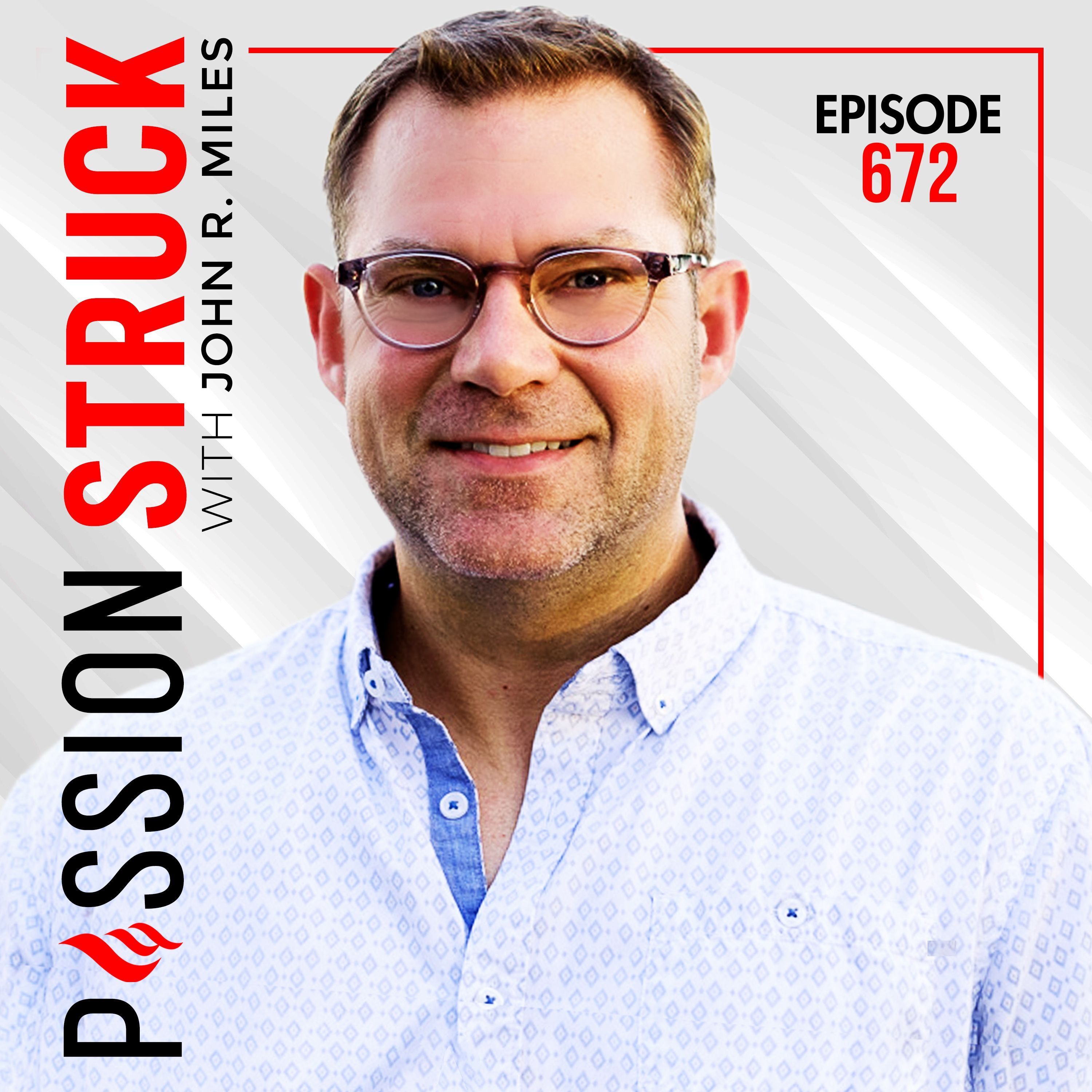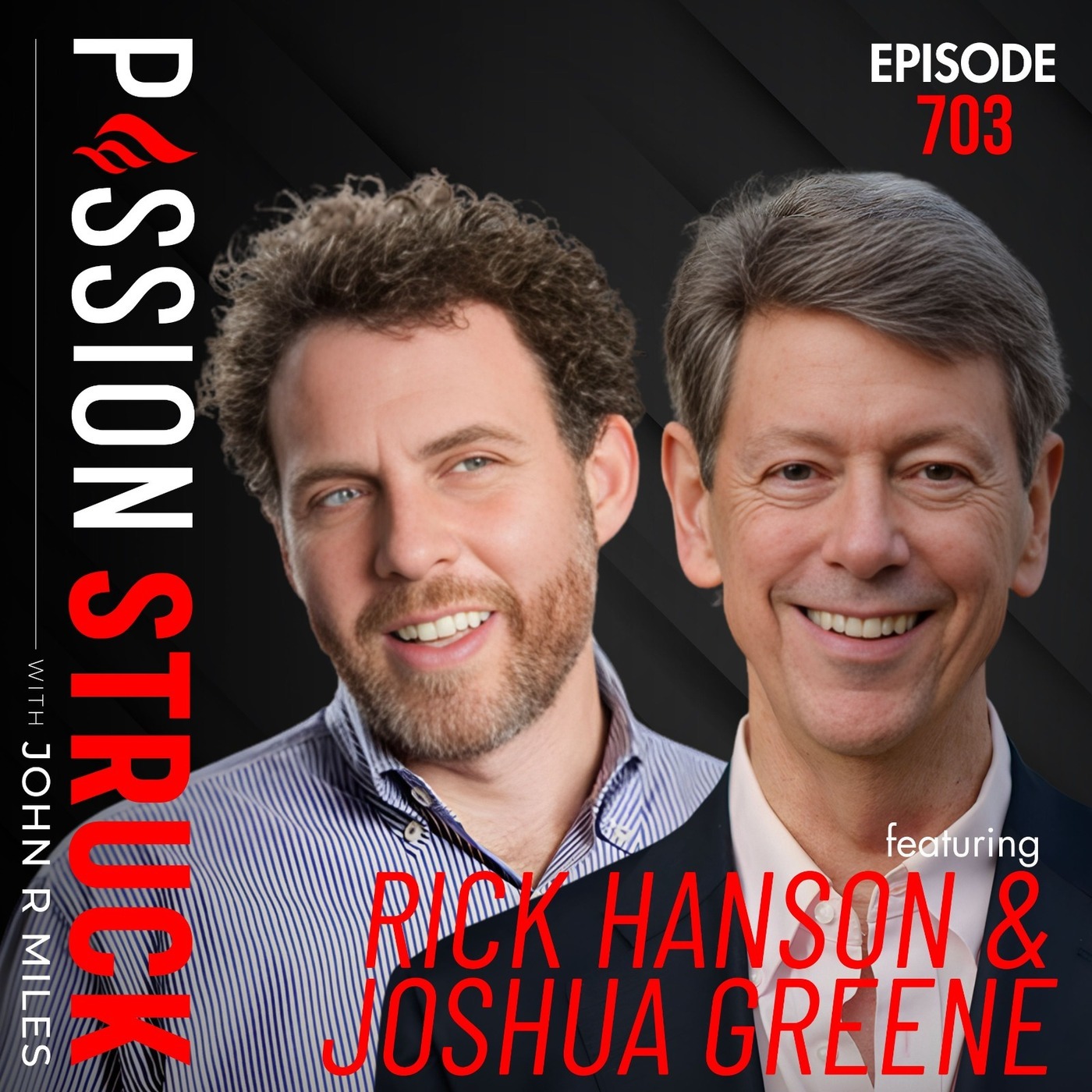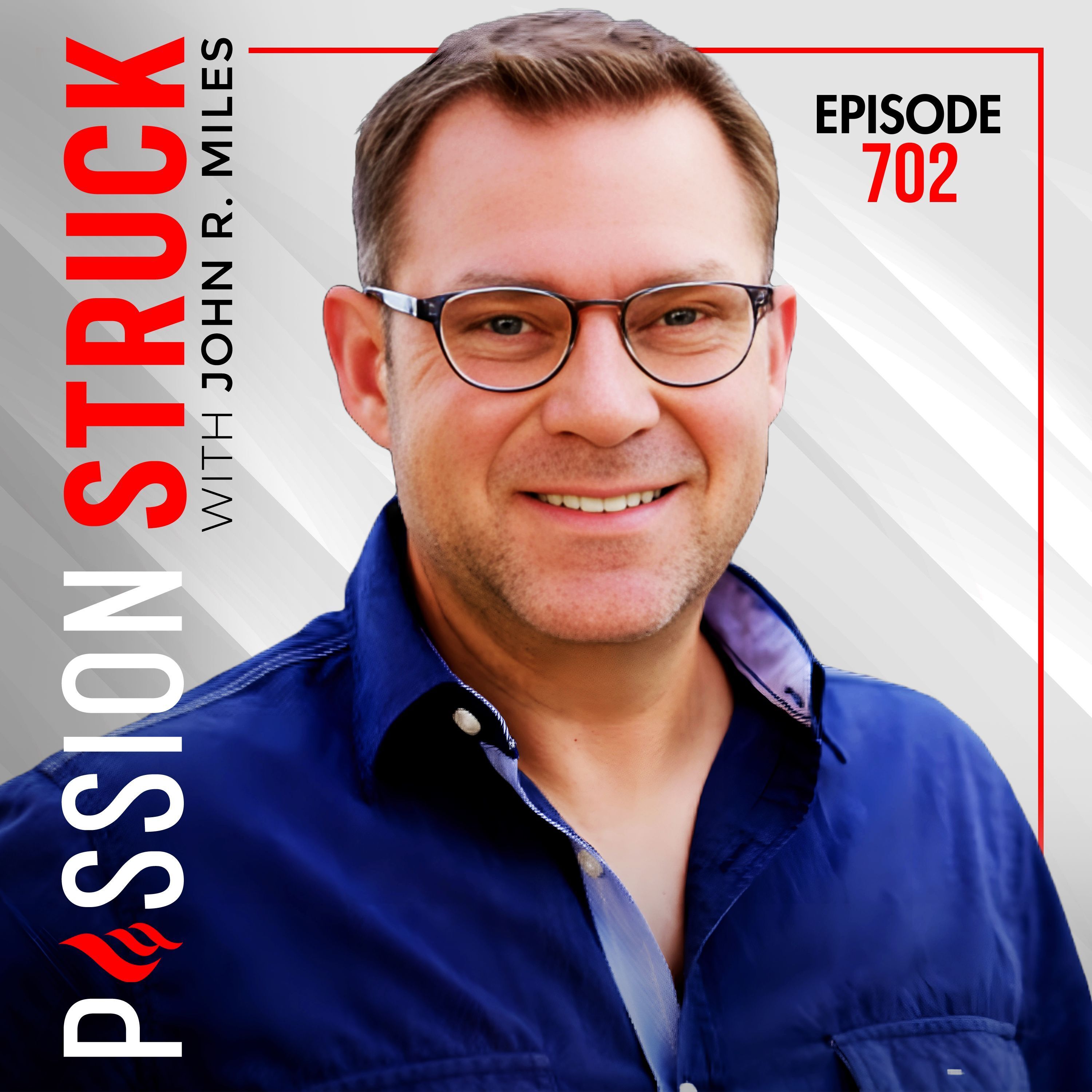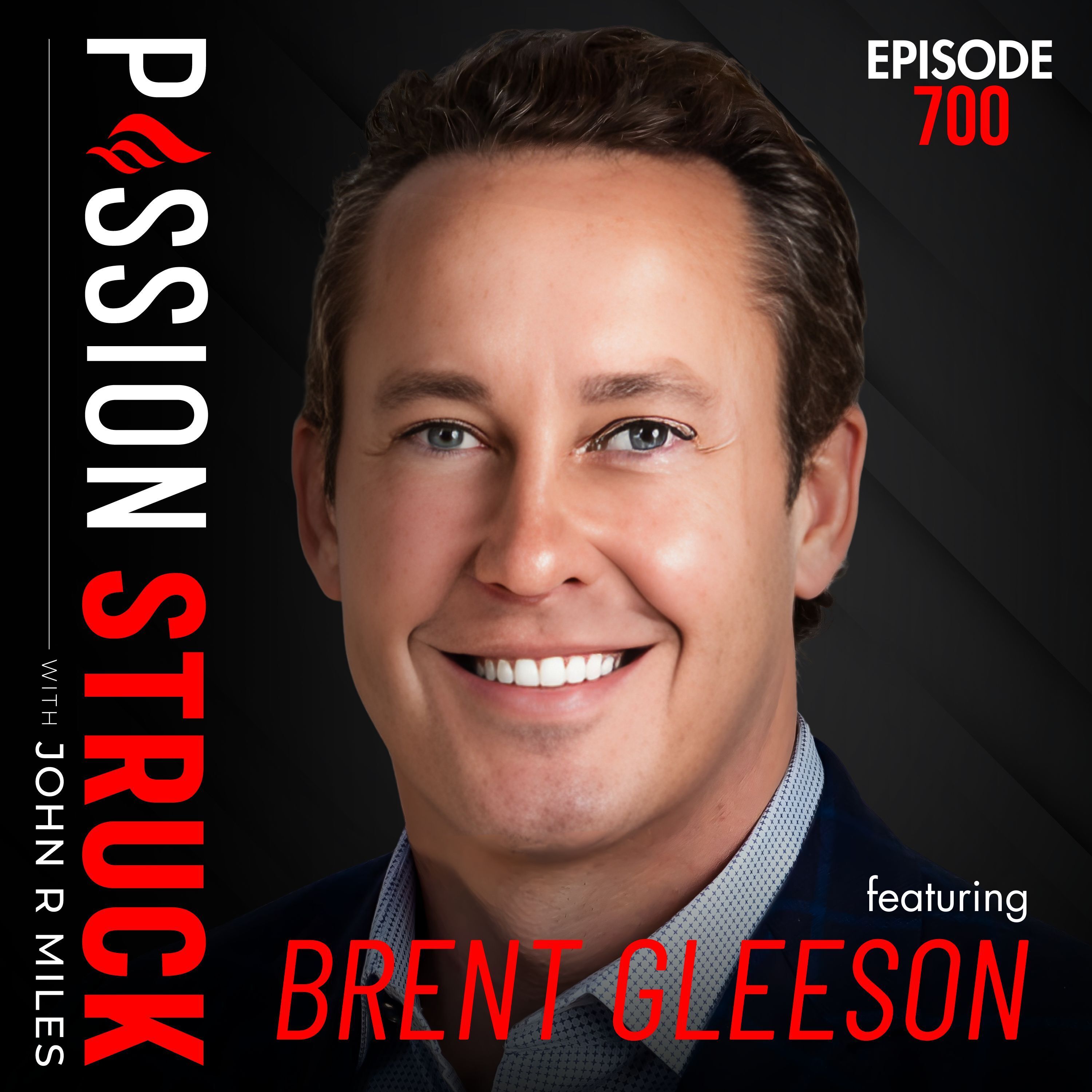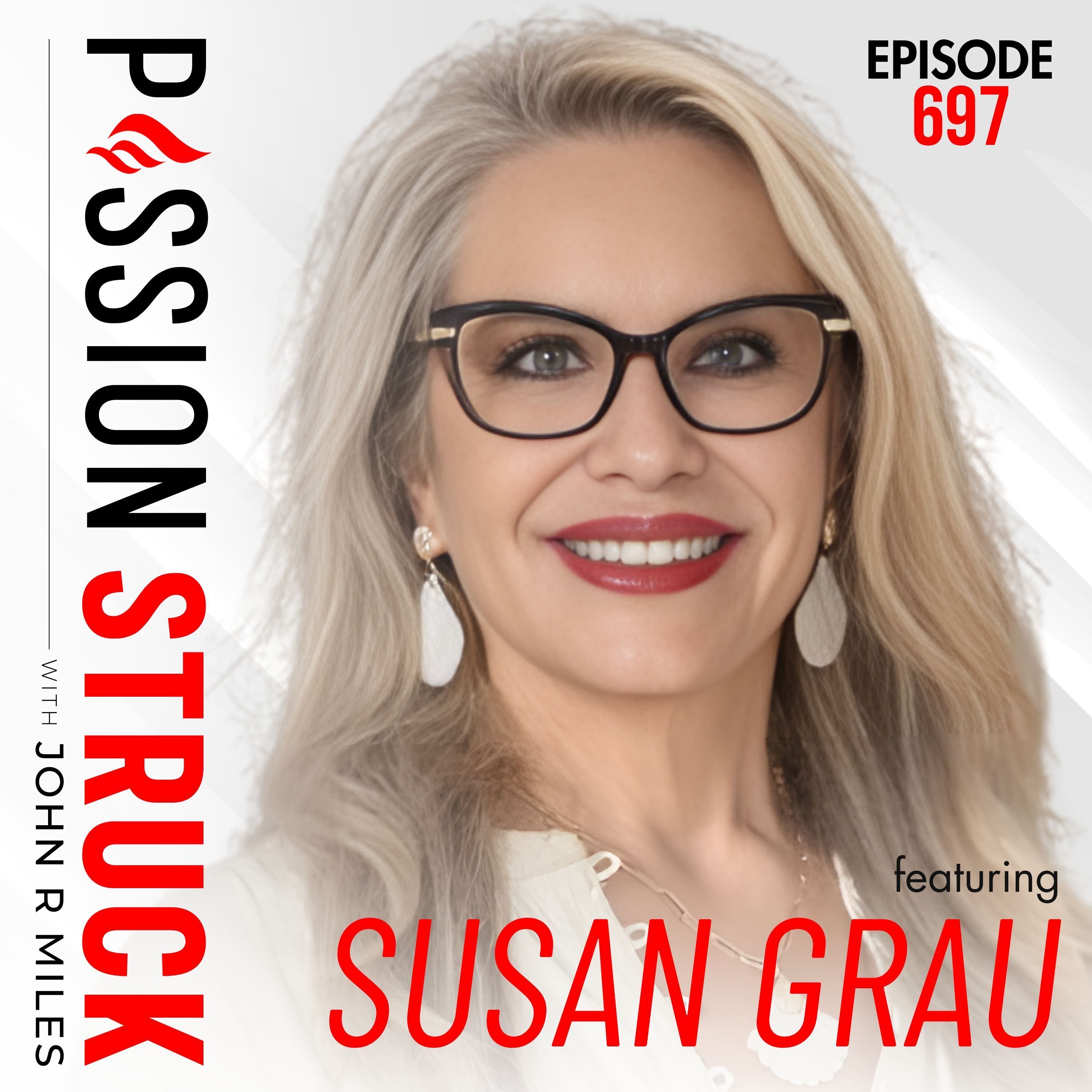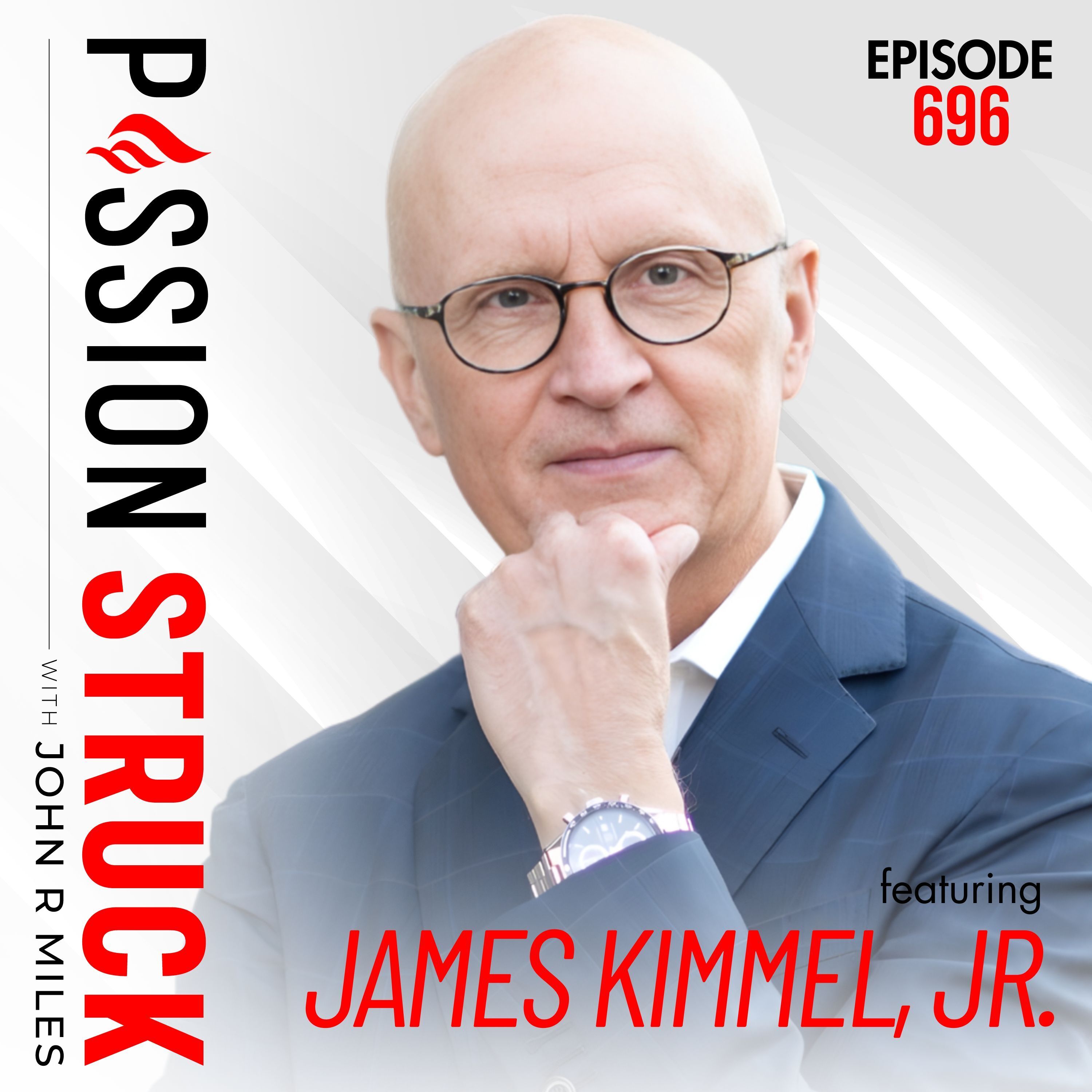The Stories That Shape Us: Why Your Narrative Defines Your Future | EP 672
What is the story you’re telling yourself right now?
It may not feel like it, but every single one of us is living inside a story. Psychologists call it a self-narrative — the ongoing script that explains who we are, how we got here, and where we’re headed next. These stories shape what we notice, what we ignore, and what we believe is possible.
If your inner story says, “I’m not enough,” then every critique, silence, or setback feels like proof of inadequacy. But if your story says, “I am resilient, I am growing,” those same experiences become evidence of strength. The circumstances don’t change. The story does.
In this final episode of my Decoding Humanity series, we’re looking at the power of story: why it matters, how it’s formed, and how you can begin to rewrite it using the S.T.O.R.Y. framework.
Go Deeper: The Ignited Life Substack
If this episode stirred something in you, The Ignited Life is where the transformation continues. Each week, John shares behind-the-scenes insights, deeper dives into the episodes, workbooks, science-backed tools, and personal reflections to help you turn intention into action.
Get the full companion workbook at TheIgnitedLife.net
Full episode on YouTube: https://www.youtube.com/@JohnRMiles
Listen on Apple Podcasts, Spotify, or wherever you get your podcasts
Everyone deserves to feel valued and important. Show it by wearing it: https://startmattering.com/
See Privacy Policy at https://art19.com/privacy and California Privacy Notice at https://art19.com/privacy#do-not-sell-my-info.
Press play and read along
Transcript
Speaker 1
Hey, Passion Struck listeners. There are supplements and they're game changers.
Miter Pura gummies from Timeline are in a league of their own.
Speaker 1 They're the first longevity gummy with urolithin A, a powerful ingredient shown to boost cellular energy and improve muscle strength by 12% in just 16 weeks.
Speaker 1
And I'm telling you, I feel the difference. More energy, faster recovery, sharper focus.
All from just two gummies a day.
Speaker 1 If you want to stay strong and energized now and as you age, then you've got to try Modopure Gummies. My friends at Timeline are offering 20% off just for my listeners.
Speaker 1
Head to timeline.com slash passionstruck to get started. That's timeline.com slash passionstruck.
Yourselves will thank you.
Speaker 2 Coming up next on Passionstruck. What story are you telling yourself right now? And is it helping you or holding you back?
Speaker 2 We We all live inside an ongoing narrative, a personal myth that explains who we are, what we value, and how we interpret every moment. But here's the thing, those stories aren't neutral.
Speaker 2
Some liberate us, some limit us. And today, we're going to decode the hidden power of the stories that shape our lives and how to reclaim authorship of your own.
Welcome to Passion Struck.
Speaker 2 I'm your host, John Miles. This is the show where we explore the art of human flourishing and what it truly means to live like it matters.
Speaker 2 Each week, I sit down with change makers, creators, scientists, and everyday heroes to decode the human experience and uncover the tools that help us lead with meaning, heal what hurts, and pursue the fullest expression of who we're capable of becoming.
Speaker 2 Whether you're designing your future, developing as a leader, or seeking deeper alignment in your life, This show is your invitation to grow with purpose and act with intention.
Speaker 2 Because the secret to a life of deep purpose, connection, and impact is choosing to live like you matter.
Speaker 2 Hey friends, episode 672 of Passion Struck is here, and this is the closing chapter of our Decoding Humanities series. To all of you who come back week after week, thank you.
Speaker 2 Your support has helped build not just a podcast, but a mattering revolution. And if this show has helped you live more intentionally or lead more authentically, I'd love your help in two quick ways.
Speaker 2
First, share this episode with someone you care about. A colleague, a student, a mentor.
Word of mouth is how this message spreads.
Speaker 2 Second, if you haven't already, leave a five-star rating or review on Apple Podcasts or Spotify. It takes less than 60 seconds and it's one of the most potent ways to help new listeners find the show.
Speaker 2
Over the past month, we've been tracing the threads that make us human. We began with the code that runs beneath the surface, our human operating system.
We examined the underlying forces of trauma.
Speaker 2
We explored the choices that define us and the legacy we leave behind. We uncovered why belonging and community are so essential to the healing process.
That journey brings us here.
Speaker 2 Earlier this week, I spoke with Joel Beasley, who shared the messy middle of becoming a stand-up comedian, a story of persistence and identity.
Speaker 2 And with Sandy Jazapovic, we examine the art of storytelling itself and how transformation often begins not with data, but with the stories we carry and share.
Speaker 2
Those conversations lead us perfectly into today's solo. Think about the last time you told someone a story about yourself.
Maybe it was how you got your first job or how you met your partner.
Speaker 2
Or maybe it was just what happened yesterday when you were stuck in traffic. On the surface, those are all small moments.
But if you look closer, you'll see something bigger.
Speaker 2
Every story we tell is part of an invisible thread. A thread that shapes who we think we are and who we might become.
Because a story isn't just entertainment.
Speaker 2 It's the water that nourishes our identity, the current that flows through belonging, the script that makes sense of our choices and our traumas.
Speaker 1 And that's where we're going today.
Speaker 2
Into the stories that shape us. The hidden scripts that can imprison or set us free.
Before we dive in, I want to give you a quick look at where we're headed next.
Speaker 2 This series, Decoding Humanity, has explored the building blocks of who we are. But starting next week, we're launching a brand new arc, the forces we cannot see.
Speaker 2 Every day, invisible forces shape what we notice, the choices we make, and the lives we build.
Speaker 2 In this four-week series, we'll explore those poles from doubt to luck, from ethics to culture, and uncover how to work with them, not against them, to live more intentionally.
Speaker 2 If you want to go deeper with what we cover today, I've created a companion workbook for this episode.
Speaker 2 It's part of the Decoding Humanities series, and you can get it all right now at our substack at theignitedlife.net. And one more thing before we begin.
Speaker 2
Next week, I'll be sharing something I've been working on quietly for a few years. A major announcement.
about my next book.
Speaker 2 I can't reveal the details yet, but if you've been following this series, you'll see exactly how it connects. So let's dive in.
Speaker 2 Thank you for choosing Passionstruck and choosing me to be your host and guide on your journey to creating an intentional life. Now, let that journey begin.
Speaker 3 Shopify's point-of-sale system helps you sell at every stage of your business. Need a fast and secure way to take payments in person?
Speaker 3
We've got you covered. How about card readers you can rely on anywhere you sell? Thanks.
Have a good one. Yep, that too.
Want one place to manage all your online and in-person sales?
Speaker 3
That's kind of our thing. Wherever you sell, businesses that grow grow with Shopify.
Sign up for your $1 a month trial at shopify.com slash listen. Shopify.com slash listen.
Speaker 1
A few days ago, I sat down with Joel Beasley. On paper, Joel had it all.
He built a thriving tech business, hosted one of the most successful technology podcasts in the world, and then he sold it all.
Speaker 1
Why? To chase a dream most of us would think is irrational. Becoming a stand-up comedian.
Joel told me, I need very difficult things. Otherwise, I spiral into depression.
So I said, okay,
Speaker 1 now I've got to figure out how to solve this comedy problem.
Speaker 1 He was in what Robin Sharma calls the messy metal, still stumbling through open mics, still wrestling with self-doubt, but beneath the struggle, you could see what was really happening.
Speaker 1
Joel was rewriting his story. He was becoming passion-struck, moving from I'm a tech entrepreneur to I'm a creator who makes people laugh.
And then there's Sandy Yazapovic.
Speaker 1 At 21, she was diagnosed with Guillan-Bayre syndrome, paralyzed from head to toe, and told by doctors she would never live a normal life. Sandy could have accepted the script, but she didn't.
Speaker 1 Sandy told me, I had learned early on that fear only exists in the absence of faith. And with that conviction, she rewrote her life story from one of victimhood to one of overcoming.
Speaker 1 She not only walked again, she built a family, a career, and a life that defied every prediction.
Speaker 1 Two very different lives, one chasing jokes in dimly lit comedy clubs, the other fighting to take her next breath. But they share a common thread.
Speaker 1 Both show us that the story you tell yourself is the operating code of your life. It shapes how you see yourself, what you believe is possible.
Speaker 1 and whether you interpret the same circumstances as defeat or as a stepping stone. Psychologists call this the self-narrative, the invisible script running through our minds.
Speaker 1 It's how we make sense of chaos. It's the foundation of our identity, shaping our strengths, our fears, even our sense of worth.
Speaker 1 And it's refined over time through childhood experiences, through culture, through the meaning we assign to both failures, and triumphs we encounter.
Speaker 1 These stories matter because they shape our identity. If your inner narrative says, I'm not enough, you'll interpret the world as proof of your inadequacy.
Speaker 1 But if your story says instead, I'm resilient, I'm growing, the very same circumstances become evidence of strength. So where do these self-narratives originate?
Speaker 1 Most of them are seated early, in childhood moments. in the voices of parents and teachers, the cultural scripts we absorb absorb without even questioning.
Speaker 1 They're often written before we're even aware we're living them. Bo Eason,
Speaker 1 the former NFL player turned master storyteller, told me something in episode 529 that still speaks with me today. Your origin story is the most powerful thing that you own, but you have to tell it.
Speaker 1
and tell it truthfully or the world will tell it for you. Bo grew up as as the least athletic kid in a family of athletes.
Coaches told him he'd never play football beyond high school.
Speaker 1
The world handed him a story. You're not good enough.
But Bo rewrote the script. His father had a single line that he asked him after every single game.
Did they measure your heart?
Speaker 1
That question became the new story that Bo carried. Not about size or speed, but about heart.
And that story carried him all the way to the NFL. Here's the point for me telling you all this.
Speaker 1
Our earliest narratives, from parents, teachers, peers, they still echo. Sometimes they echo encouragement.
Other times they whisper limitations. The question isn't, did those early stories shape you?
Speaker 1 They did. The better question is, Are you still letting them define who you are today? Or have you chosen to reinterpret them? I want you to think about that for a moment.
Speaker 1 What was the first story that you believed about yourself? Was it that you were smart? That you were funny? Maybe it was that you were a burden, that you didn't measure up.
Speaker 1
Those origin stories rarely stay small. They grow.
They harden. And before long, they become the lens through which we interpret every new experience.
But here's the good news.
Speaker 1 Just like Bo, you too can choose to rewrite your origin story. You can decide that instead of being the least athletic, you were the one who learned perseverance.
Speaker 1 Instead of being the overlooked child, you became the child who learned empathy.
Speaker 1 Instead of being the kid who never fit in, you were the one who grew up into the type of leader who made others feel they belong. The through line through all of them is this.
Speaker 1
The stories we inherit are not destiny. They are drafts.
And the pen is still in your hand. So why do these stories matter so much? Because they don't just live in our heads.
Speaker 1 They shape the way that we move throughout the world. They've become the filter for what we notice, what we ignore, and what we believe is possible.
Speaker 1 If your inner story says, I'm not enough, you'll find inadequacy everywhere.
Speaker 1 In a boss's critique, in a friend's silence, in a missed opportunity but if your story says i'm resilient i'm growing those same experiences become evident in how you're living your life your circumstances don't change the story does donald miller the author of build your story brand and build your story brand 2.0 made a simple but profound observation when I interviewed him in episode 590.
Speaker 1
If you confuse, you lose. He was talking about about businesses, about how brands lose customers when their story is cluttered or unclear.
But the same thing applies to each and every one of us.
Speaker 1 When our personal story is confused, when it's cluttered with fear, comparison, or inherited scripts, we lose clarity. We drift, we spin, we settle.
Speaker 1 But when we edit our story back to its truth, When we strip away all the noise and name what's real, clarity returns, Direction returns. And suddenly, our lives start making sense again.
Speaker 1 Charles Duhigg, who joined me in episode 420 to discuss his book Super Communicators, explained that every conversation is actually three conversations at once. Practical, emotional, and social.
Speaker 1
When we fail to match the conversation someone is really having, we miss the moment. But when we do match it, we connect.
That's exactly what stories do for us. They align those inner conversations.
Speaker 1
They make our practical goals, our emotional struggles, and our social bonds line up as a coherent whole. Without story, life is just data points.
With story, it's meaning. And here's a preview.
Speaker 1 Charles will be returning to Passion Struck in just a few weeks to expand on our first discussion.
Speaker 1
And I'll be asking him specifically about how the stories we teach each other and ourselves shape trust, connection, and transformation. This is why stories matter.
They're not just entertainment.
Speaker 1 They are the architecture of our reality.
Speaker 1 They determine whether we see ourselves as victims or as overcomers, whether we interpret pain as punishment or as preparation, whether we look at our past as proof that we're doomed.
Speaker 1 or proof that we've been forged. And once you realize that, you begin begin to see that the most important story in your life is the one you're telling yourself right now.
Speaker 1 As I was preparing for this episode, reflecting on Joel's messy metal, on Sandy's resilience, on the way Donald Miller and Charles Duhigg frame clarity and connection, I kept asking myself, how do we take something as vast as a story and make it usable because here's the truth we don't just just listen to stories.
Speaker 1 We live them. And if the story you're living by is confused, borrowed, or outdated, it will quietly write your life in countless ways you never intended.
Speaker 1 So I started breaking it down, analyzing the patterns and the stories we tell ourselves and the way that they either limit us or liberate us.
Speaker 1 Out of this analysis came a framework, something memorable, something practical. I call it story.
Speaker 1
Five dimensions that explain not just how stories work, but how you can begin to decode and rewrite the story that you are living. S is for sensemaking.
T is for truth. O is for origin.
Speaker 1
R is for resonance. And Y is for you.
Let's walk through them together. Sensemaking and storytelling are deeply intertwined.
Every time that we ask, what's the story here?
Speaker 1 We're trying to impose order on chaos. Stories provide the structure that our brains crave, organizing information, assigning meaning, and making the uncertain feel at least understandable.
Speaker 1
Think about how we remember major events. Rarely do we store raw data points.
Instead, we hold onto the story, where we were, who we were with, how it made us feel. Story is memory's filing system.
Speaker 1 It transforms fragmented details into a cohesive narrative arc. That's why after traumatic events or during rapid change, people instinctively turn to stories.
Speaker 1 Narrative provides the lens that makes a system comprehensible. It turns scattered facts into a coherent framework, helping us decide not just what happened, but what it means.
Speaker 1 Researchers in system thinking and public health have noted the same phenomenon.
Speaker 1 When faced with complex, fast-moving problems like sustainability, youth engagement, or workplace wellness, data alone often falls short.
Speaker 1
But when people are asked to tell the story of the problem, something remarkable happens. Disconnected information begins to take shape.
Patterns emerge.
Speaker 1
And even in the absence of perfect evidence, a narrative helps groups see a system they're working in. and imagine how to act within it.
Stories act as collective sense-making tools.
Speaker 1 They allow groups to align around shared meaning, especially in dynamic, uncertain systems where evidence alone can't provide clarity. Sometimes the story is big, a national myth, a cultural legend.
Speaker 1
At other times, it's micronarrative, a personal anecdote shared in a meeting. Both help us orient ourselves.
That's the real power of sense-making. It shows us that stories are not luxuries.
Speaker 1
They're survival strategies. Without them, we're drowning in data.
With them, we begin to see patterns, purpose, and possibility. And then that brings us to T for truth.
Speaker 1
Not every story we tell ourselves is true. Some are distorted.
Some are inherited. Some are flat-out lies we've repeated so often that they feel like facts.
Speaker 1 And when those false stories take hold, they can quietly shape our lives in ways that limit our potential.
Speaker 1 Matt Abrahams, who teaches strategic communication at Stanford and hosts the Think Fast Talk Smart podcast, told me in our conversation in episode 425 that mistakes aren't failures.
Speaker 1
They're missed takes. Think of them like a film set.
Every take isn't the final cut. It's just another attempt, another angle.
another chance to get closer to what's real.
Speaker 1
That simple reframe demolishes a false story that many of us carry. If I mess up, I'm not good enough.
The truth, mistakes are evidence that you're trying, learning, and iterating.
Speaker 1
They aren't the end of your story. They're how your story grows.
Abraham also challenges his MBA students to maximize mediocrity so that you can achieve greatness. On the surface, it sounds backwards.
Speaker 1
but he's pointing at another false narrative that we often live by. I must be perfect to be accepted.
That story doesn't clarify. It suffocates.
Speaker 1 The moment you let go of the lie of perfection, you stop performing for approval and start showing up with presence. And presence is where truth lives.
Speaker 1
The truth is often simpler than the story that we've been telling. Maybe it's not, I'm not enough, but I'm learning.
Not I'm broken, but I've been tested and I'm growing stronger.
Speaker 1
Reclaiming truth in our stories isn't just about accuracy. It's about freedom.
Truth reminds us that clarity is power. And the clearer your story, the clearer your life becomes.
Speaker 1
Editing your story back to its truth, stripping away the noise, the lies, the parts that don't serve you. is what restores direction.
That's when the path becomes clear again.
Speaker 2 Now, before we move to the next dimension of the story framework, I want to take a quick pause. Thank you for supporting the brands that support this show.
Speaker 2 It allows us to keep bringing you these conversations and frameworks each week. And while you're at it, don't forget to check out the Start Mattering store at startmattering.com.
Speaker 2 It's filled with apparel, blogs, and gear designed to be daily reminders to live like you matter because sometimes the right message on your chest is the story that you most need to carry.
Speaker 1 We'll be right back.
Speaker 2 Welcome back to Passion Struck on the Passion Struck Network.
Speaker 1 We've already examined the first two dimensions of the story framework, how it provides coherence through sense making, and how it restores clarity through truth. Now let's turn to the third.
Speaker 1
O is for origin. Every story has a beginning, and the stories we live by are no different.
Our origin stories are powerful because they carry both our deepest wounds and our earliest wisdom.
Speaker 1
They are the scripts first handed to us, often before we had the language to question them. Think about the stories that children hear from parents, teachers, or peers.
You're so smart.
Speaker 1
You'll never amount to much. You're the responsible one.
These early lines echo across decades. They shape how we see ourselves, even when we've long outgrown the roles.
Speaker 1
Bo Eason told me something that stuck. Your origin story is not something to hide.
It's your differentiator. It's what makes your life believable, relatable, and resonant.
Speaker 1 Here's the question that most of us face. When we never question our origin stories, we risk living out scripts that no longer serve us.
Speaker 1 Maybe you were told you were shy, so you stopped speaking up, or that you weren't leadership material, so you stopped trying to become a leader.
Speaker 1 But just like Bo, you have the power to reinterpret that origin. Origin reminds us that the stories that we inherit are drafts, not destinies.
Speaker 1
They explain where we came from, but they don't have to dictate where we go. Next, R is for resonance.
Stories pass through us and fade away. Others take root, they linger.
Speaker 1
They echo across years, even generations. That's the power of resonance.
Resonance is what what makes stories stick in our bones. They don't just inform us, they move us.
Speaker 1 They vibrate at a frequency that matches our own longings, struggles, or hopes. Think about Martin Luther King Jr.'s I Have a Dream speech.
Speaker 1
On the surface, it was only words delivered on a hot, sunny day in 1963. But those words carried resonance that still shakes the American conscious today.
Why?
Speaker 1 Because King wasn't simply laying out a political argument. He was telling a story that tapped into the human longing for dignity, belonging, and justice.
Speaker 1 Or consider the parables of ancient wisdom traditions, stories told thousands of years ago that still shape how people live today.
Speaker 1 They endure not because they're the most detailed, precise accounts, but because they resonate with the human condition.
Speaker 1
When I spoke to Charles Duhigg in episode 420, he told me that resonance often begins with the questions we ask. Most of us stay at the surface.
What do you do? Where are you from?
Speaker 1
But the stories that change us don't come from surface questions. They come from deep ones.
Questions that ask people not just what they think, but who they are.
Speaker 1 Stories that resonate are born from that same place. They bypass the surface details and touch identity, meaning, and belonging.
Speaker 1 It's why Joel's decision to step onto a comedy stage resonates, even if you've never held a microphone, because everyone knows what it feels like to risk identity in the pursuit of something more.
Speaker 1 And it's why Sandy Josipovic's story of overcoming stage four cancer resonates, even if you've never faced a cancer diagnosis. Because all of us know what it means to face fear.
Speaker 1
and to choose faith anyway. Resonance reminds us that story is not passive, it's participatory.
We feel it, we carry it, and sometimes it rewrites us. And lastly, why? For you.
Speaker 1 At some point, you have to pick up the pen.
Speaker 1 Because no matter what you've inherited, no matter what chaos you've survived, no matter how others have tried to define you, the story of your life is still being written and the author is you.
Speaker 1
Every guest I've mentioned underscores this in their own way. Donald Miller says clarify your narrative.
Bo Eason says own your origin. Charles Duhigg says connect through authentic communication.
Speaker 1
All of them point to the same truth. You are not just a character in someone else's script.
You are the main character and the author of your own script.
Speaker 1 That means you can revise, you can edit, you can cross out the lines that don't fit anymore and write new ones that reflect the person who who you're becoming.
Speaker 1
Maybe the story you've been carrying is, I'll always mess things up. You can choose to rewrite it as, I'll learn faster because I failed.
Maybe your story is, I don't belong here.
Speaker 1
You can shift it to, my difference is strength. The power of story is not just in remembering where you've been.
It's in choosing where you're going to go next.
Speaker 1 And that's the invitation to stop waiting for someone else to narrate your your life, to pick up the pen, to become the storyteller of your own becoming.
Speaker 1 Now, it's one thing to understand the story framework in theory. It's another to use it in practice, to actually reshape the narratives that are shaping you.
Speaker 1 So how do you apply story to your own life? Start with sense making. When something painful or confusing happens, instead of asking, why me, ask, what's the story here? Write it down.
Speaker 1
Notice what details you emphasize, what meaning you assign. That story is your brain's attempt to bring order to chaos.
Once it's on paper, you can see whether it empowers you or imprisons you.
Speaker 1 Next, ask, is the story true? Or is it cluttered with fear, comparison, or scripts you inherited, but you never chose?
Speaker 1
Often you'll find that there's a gap between what's happened and the story you're telling about it. Clarity comes when you strip away what isn't real and focus on what is.
Next, revisit your origin.
Speaker 1 Think back to the earliest story you believed about yourself. Was it that you were gifted, overlooked, a burden, the responsible one? Those scripts still echo.
Speaker 1 Question them, and if they no longer serve you, rewrite them. Like Bo Eason,
Speaker 1
you can choose a different origin to carry forward. Then listen to resonance.
Pay attention to the stories that move you in books, in speeches, in conversations. Ask yourself why they hit so deeply.
Speaker 1
Chances are they're mirroring something in your own life that needs attention. Use resonance as a compass.
It reveals what matters most to you. And finally, claim you.
Speaker 1
At some point, you have to stop waiting for someone else to write your story. Pick up the pen.
Revisit the script you've been living.
Speaker 1
Decide what the next chapter says about who you are and where you're going. That's authorship.
That's agency. This week try this.
Speaker 1 Write down the current story you're telling yourself about one area of your life, maybe work, a relationship, or your health. Then run it through the story framework.
Speaker 1 Does it make sense of what's happening? Is it true?
Speaker 1 How does it connect to your origin? Does it resonate with who you want to be? And what roles are you playing? the passive character or the active author? Your story isn't fixed.
Speaker 1
It's a draft, and you hold the pen. The stories we tell ourselves matter because they become the blueprint of our lives.
If you don't author your story, the world will. Fear will.
Distraction will.
Speaker 1 But when you reclaim the pen, you reclaim your future. If belonging is the soil, story is the water, and together, they make us human.
Speaker 1 Over the past five weeks on our Decoding Humanities series, we've explored different frameworks that I put together. Code, Heal,
Speaker 1 Choice, Belong, and now Story. Each one is a lens to help you live with more clarity, purpose, and intentionality.
Speaker 1 If you'd like to go deeper, grab the companion workbook for this episode and each of the other ones at theignitedlife.net, our substack, and check out the Start Mattering store at startmattering.com.
Speaker 1
Daily reminders reminders to live like you matter. To all of you who come back week after week, thank you.
Your support is what makes this a mattering revolution.
Speaker 1 If this show has helped you, share it with a friend and leave a five-star rating and review on Apple Podcasts and Spotify. And next week, don't miss my conversation with Dr.
Speaker 1 Brennan Spiegel about his new book, Pole, How Gravity Shapes Your Body, Steadies the Mind, and Guides Our Health.
Speaker 1 We'll explore how gravity influences everything from posture to mood and how building gravity resilience may be the key to better health.
Speaker 4 I think about our psychology and what do we do as humans. We are trying to find patterns in chaos.
Speaker 4 We are surrounded by entropy, by a world that's trying to pull us apart, both physically, emotionally, and in many other domains. And what we do as humans is we make sense of the world.
Speaker 4 the physical input into our bodies, which is part of what this new book is about, the emotional inputs, And how do we create a coherent narrative in our mind's eye that allows us to find patterns that allow us to survive and thrive?
Speaker 4
And behavioral economics is a set of tools to do that efficiently. But psychologically, that's what we're doing.
And that's what AI is starting to teach us in terms of how we go about doing that.
Speaker 1 And one last thing, stay tuned for a major announcement about my new book coming next week. I can't share the details just yet, but if you followed this series, you'll see exactly how it connects.
Speaker 1 Until then, remember, you're you're not just a character in someone else's story, you are the author. So live like you matter and become passion struck.
Speaker 5 As a founder, you're moving fast toward product market fit, your next round, or your first big enterprise deal.
Speaker 5 But with AI accelerating how quickly startups build and ship, security expectations are higher earlier than ever.
Speaker 5 Getting security and compliance right can unlock growth or stall it if you wait too long.
Speaker 5 With deep integrations and automated workflows built for fast-moving teams, Vanta gets you audit ready fast and keeps you secure with continuous monitoring as your models, infra, and customers evolve.
Speaker 5 Fast-growing startups like Langchain, Writer, and Cursor trust Advanta to build a scalable foundation from the start.
Speaker 5 Go to Vanta.com to save $1,000 today through the Vanta for Startups program and join over 10,000 ambitious companies already scaling with Vanta. That's vanta.com to save $1,000 for a limited time.
Speaker 1 Stuck in a dinner rut?
Speaker 3 We've all been there, bored with the same takeout options or eaten a bowl of cereal for dinner.
Speaker 3 Let Cook Unity handle dinner tonight with ready-to-heat chef-crafted meals delivered straight to your door.
Speaker 3 New menu drops, weekly recommendations, and a thriving community of award-winning chefs keep your meal options endlessly delicious.
Speaker 3 With a team of over 160 culinary innovators, creating an ever-expanding lineup of small batch dishes, Cook Unity serves up more than 400 irresistible meals for every craving.
Speaker 3 Plus, you can pause, skip, or cancel any time, making it easy to find a plan that fits your tastes, schedule, and lifestyle. Shake up your meal routine.
Speaker 3 Go to cookunity.com/slash mealtime50 or enter code mealtime50 before checkout for 50% off your first week and 20% off your next three weeks.
Speaker 3 That's 50% off your first week and 20% off your next three weeks at cookunity.com/slash mealtime50.
